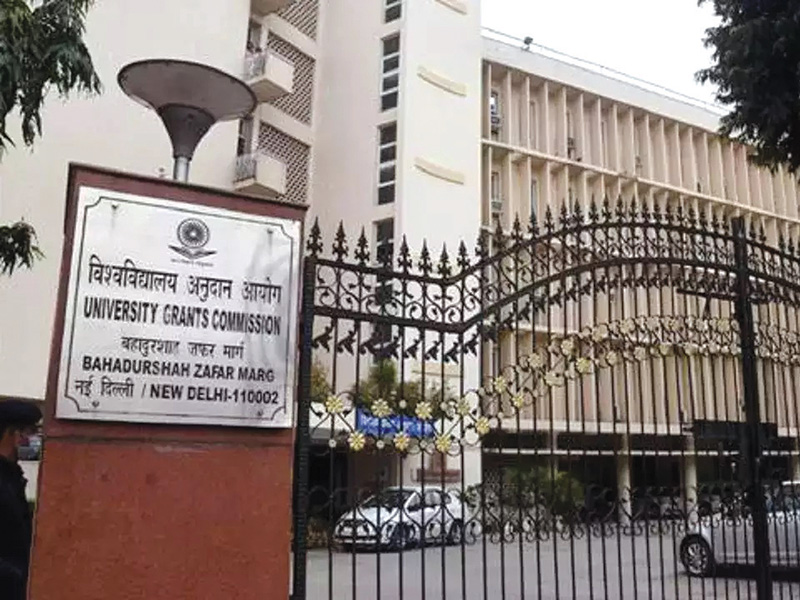Mita Mukherjee
In a major shift from the existing process of appointing faculty members and vice-chancellors (VC), the University Grants Commission (UGC) released revised rules on Monday which if approved will give state governors more powers in appointing VCs and allow experts from industry and public sector to be eligible for VC posts, a new system that will break the tradition of selecting only academicians as university heads.
The provision to give more powers to chancellors in the new draft regulations – titled ” University Grants Commission ( Minimum Qualifications for Appointment and Promotion of Teachers and Academic Staff in Universities and Colleges and Measures for Maintenance of Standards in Higher Education) Regulations, 2025, is significant as in the Opposition – ruled states like West Bengal, Tamil Nadu and Kerala where the governor, also the chancellor of state universities have been locked in disputes over the issue of who has the final say in selecting VCs of state universities.
“The Chancellor/Visitor shall constitute the Search cum Selection Committee comprising three experts….” The Visitor/Chancellor of the university shall appoint the Vice-Chancellor out of the panel of names recommended by the Search-cum-Selection Committee……” the draft regulations say.
According to university teachers this provision implies not only more powers of governors in VC appointments, it also indicates that chancellors will have the final say.
The draft spelt out the consequences of violation of the regulations by higher education institutions. “If any HEI violates the provisions of these regulations, the Commission shall constitute an enquiry committee to look into the violations. If the violations are established by the enquiry committee set up by the Commission, the HEI shall be—(a) Debarred from participating in UGC schemes. (b) Debarred from offering degree programmes. (c) Debarred from offering ODL and online mode programmes. (d) Removed from the list of HEIs maintained under Sections 2(f) and 12B of UGC Act 1956. The HEI shall be subjected to one or more of the above actions. The UGC may also take additional punitive actions as per the decision of the Commission on a case-to-case basis,” the draft rules states.
However, the regulations nowhere mentions the word governor. It only mentions the position of chancellor. Bringing yet another major change, the draft regulations says university VCs need not be only academics. But can be experts in senior positions in industry, public policy, public administration or public sector undertakings.
Spelling out the qualification of vice- chancellors, the draft says, the candidates must be a “distinguished person possessing high academic qualifications and demonstrated administrative and leadership capabilities…. The candidate must have ” a minimum of ten years of experience as (i) a Professor in an HEI or (ii) at a senior level in reputed research or academic administrative organizations or (iii) at a senior level in industry, public administration, public policy and/or public sector undertakings, with a proven track record of significant academic or scholarly contributions, shall be eligible to be appointed as Vice-Chancellor. ……”
Apart from broadening the eligibility criteria for selecting VCs, the draft guidelines also introduced major changes in criteria for selecting faculty members of higher educational institutions.
According to the UGC chairman M. Jagadesh Kumar under the revised rules if a candidate is a BA in economics and has PhD degree in the same subject but has the postgraduate degree in sociology, then she or he would be eligible to teach economics, which is not allowed in the existing rules.
” In the existing UGC Regulations the focus is more on publishing journals or to earn the academic performer indicator (API) points. So it became more number-driven appointments rather than quality- driven. … Today if I have done BA in economics, MA in sociology PhD in economics and I apply in any univetsity, they will say your MA is not in economics, it is in sociology. So you are not eligible to teach economics. The fault is not with the universities. The fault is with the rigidity in the existing regulations….” the UGC chairman said.
The draft regulations was released by Union education minister Dharmendra Pradhan. The regulations have been placed in the public domain for feedback, suggestions, and consultations. The feedback will be received for 30 days. The final form of the regulations will be released after examining the feedback.
Releasing the regulations, Pradhan said that the draft reforms and guidelines will infuse innovation, inclusivity, flexibility and dynamism in every aspect of higher education. It will empower teachers and strengthen academic standards to pave the way for achieving educational excellence, he said.
